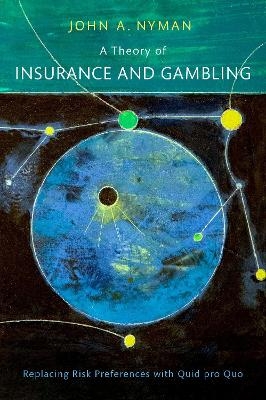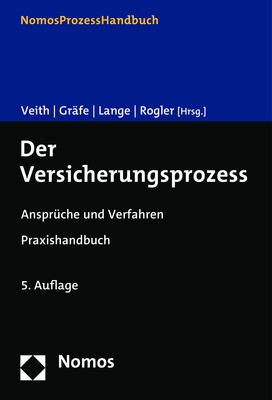
A Theory of Insurance and Gambling
Oxford University Press Inc (Verlag)
978-0-19-768792-5 (ISBN)
In A Theory of Insurance and Gambling, John A. Nyman critiques this approach and proposes a new theory of the motivations for insurance and gambling. He argues that demand for insurance and gambling is best understood by focusing not on risk preferences, but on the income transfer, the states of the world that trigger the income transfer, and the value of the income in those states. In other words, insurance is motivated by a preference to transfer income to future states of the world where income is more valuable. Gambling, on the other hand, is motivated by a preference to transfer income to future states of the world where additional income is less costly to obtain.
Nyman ultimately seeks to reorient how economists think about insurance and gambling by moving away from seeing uncertainty as a negative motivating factor to simply a mechanical feature that allows for the augmentation of income and consumption. He moves away from biased models that ignore income effects and state dependency when evaluating the benefits from insurance and gambling, and away from preferences regarding risk toward the desire to obtain additional future income. Presenting the case that risk preferences do not motivate demand for insurance or gambling, A Theory of Insurance and Gambling calls into question a fundamental tenet of economic thinking.
John A. Nyman is Professor Emeritus of Health Policy and Management in the School of Public Health at the University of Minnesota. His over 150 research articles include important analyses of topics as diverse as: the effect of excess demand on the quality of nursing home care, the need for consistency in cost-effectiveness analyses, the effectiveness of health promotion programs in the workplace, the impact of attrition bias in the RAND Health Insurance Experiment, and alternative explanations for the St. Petersburg paradox and the gambler's fallacy. In addition to these, he is the author of a number of research articles on insurance and gambling, and the book, The Theory of Demand for Health Insurance (Stanford University Press, 2003).
Preface
1. Introduction
2. Demand for Insurance: Preference for Certainty or Desire for Additional Income
3. Demand for Gambling: Preference for Risk or Desire for Work-free Income
4. Insurance and Gambling Supply
5. Evidence on Risk Preferences and the Role of Prospect Theory in Insurance
6. The Role of Loss Aversion in Insurance
7. Empirical Evidence for Gambling
8. Price and Income Effects in Insurance
9. The Insurance-purchasing Gambler
10. Conclusions
References
Index
| Erscheinungsdatum | 20.01.2024 |
|---|---|
| Verlagsort | New York |
| Sprache | englisch |
| Maße | 226 x 163 mm |
| Gewicht | 499 g |
| Themenwelt | Mathematik / Informatik ► Mathematik ► Angewandte Mathematik |
| Mathematik / Informatik ► Mathematik ► Finanz- / Wirtschaftsmathematik | |
| Betriebswirtschaft / Management ► Spezielle Betriebswirtschaftslehre ► Versicherungsbetriebslehre | |
| Wirtschaft ► Volkswirtschaftslehre ► Mikroökonomie | |
| ISBN-10 | 0-19-768792-X / 019768792X |
| ISBN-13 | 978-0-19-768792-5 / 9780197687925 |
| Zustand | Neuware |
| Informationen gemäß Produktsicherheitsverordnung (GPSR) | |
| Haben Sie eine Frage zum Produkt? |
aus dem Bereich


